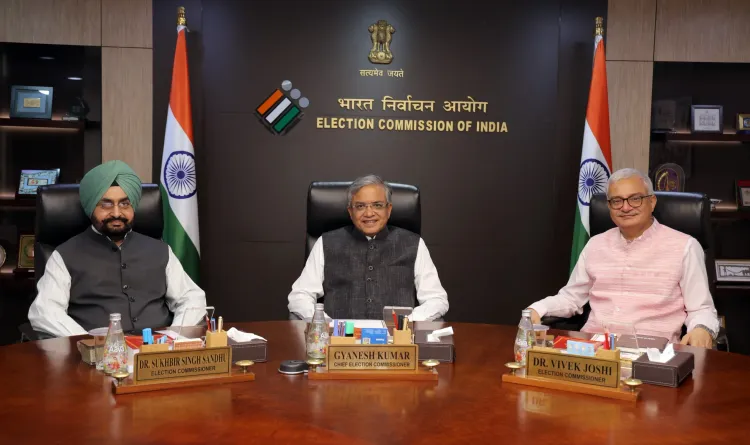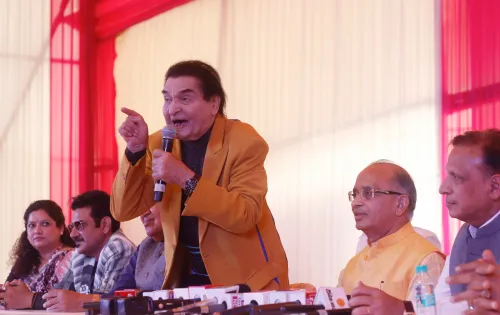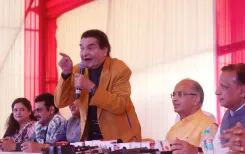What is the Election Commission's Strategy for Bihar Polls?

Synopsis
Key Takeaways
- Election Commission's proactive engagement with state parties enhances transparency.
- Focus on upcoming Bihar Assembly elections demonstrates the ECI's commitment.
- Over 4,700 all-party meetings conducted to gather insights.
- Initiative aims to strengthen the electoral process across India.
- 345 inactive parties under review for potential delisting.
New Delhi, July 1 (NationPress) The Election Commission of India (ECI) has commenced a new series of discussions with recognized state political parties as part of its continuous consultations in preparation for upcoming electoral events, including the significant Bihar Assembly elections later this year, along with elections in West Bengal, Assam, Tamil Nadu, Kerala, and Puducherry next year.
On Tuesday, Chief Election Commissioner Gyanesh Kumar and Election Commissioners Sukhbir Singh Sandhu and Vivek Joshi engaged with a delegation from the Trinamool Congress, led by their authorized representatives—Chandrima Bhattacharya, Kalyan Banerjee, Firhad Hakim, Aroop Biswas, and Prakash Chik Baraik—to gather their insights at the poll panel's headquarters in New Delhi.
According to a statement from the Election Commission, "These discussions address a long-standing need for constructive dialogues that allow national and state party leaders to voice their suggestions and concerns directly to the Commission."
This initiative is part of the Commission’s broader goal to further bolster the electoral process in line with the existing legal framework, involving all relevant stakeholders.
The poll panel has already conferred with recognized National Parties. These include the Bahujan Samaj Party (BSP) led by Mayawati on May 6, the Bharatiya Janata Party (BJP) led by J.P. Nadda on May 8, CPI(M) General Secretary M.A. Baby on May 10, National People’s Party (NPP) President Conrad Sangma on May 13, and the Aam Aadmi Party (AAP) led by Arvind Kejriwal on May 15.
Earlier this year, in March, a total of 4,719 all-party meetings were held, involving 40 meetings by Chief Electoral Officers (CEOs), 800 by District Electoral Officers (DEOs), and 3,879 by Electoral Registration Officers (EROs), engaging over 28,000 representatives from political parties nationwide.
As Bihar approaches election time, the Election Commission is anticipated to sharpen its focus on the state.
In addition, the ECI has taken a definitive stance against inactive registered political parties.
Several of these parties, which have remained on official records without activity for years, are now under review.
Recently, the poll panel initiated actions to delist 345 registered unrecognized political parties (RUPPs) that have not contested a single election in the past six years, dating back to 2019.









